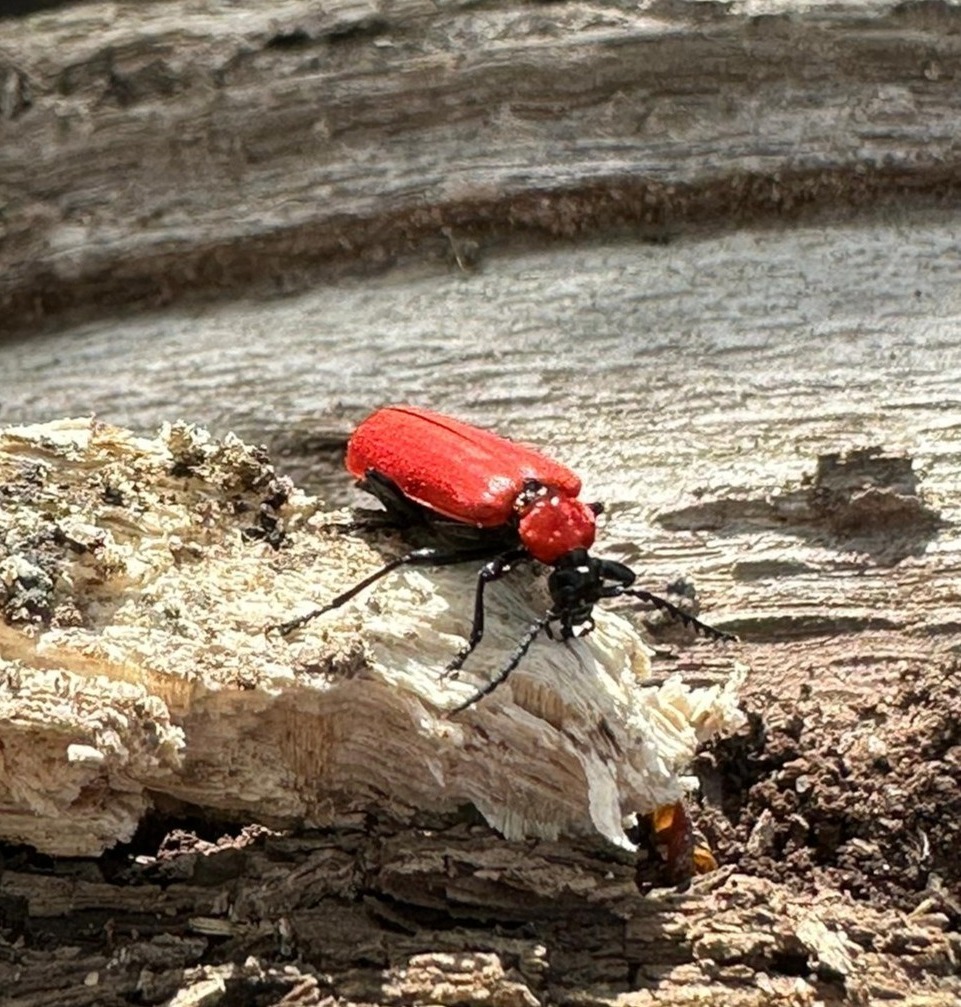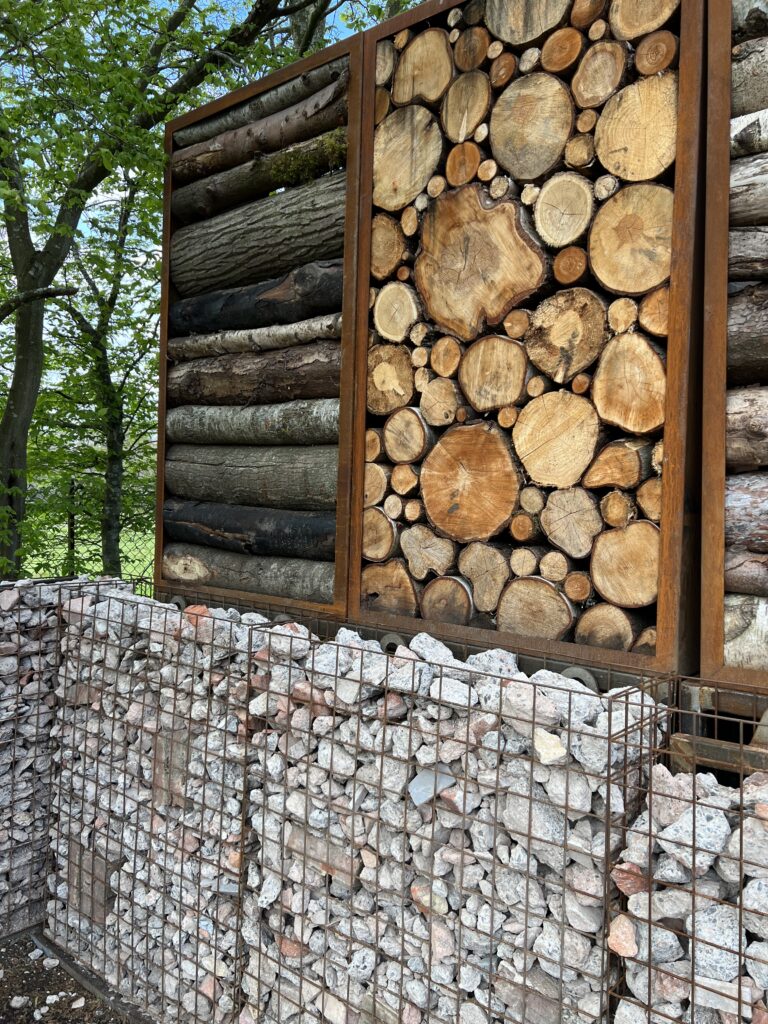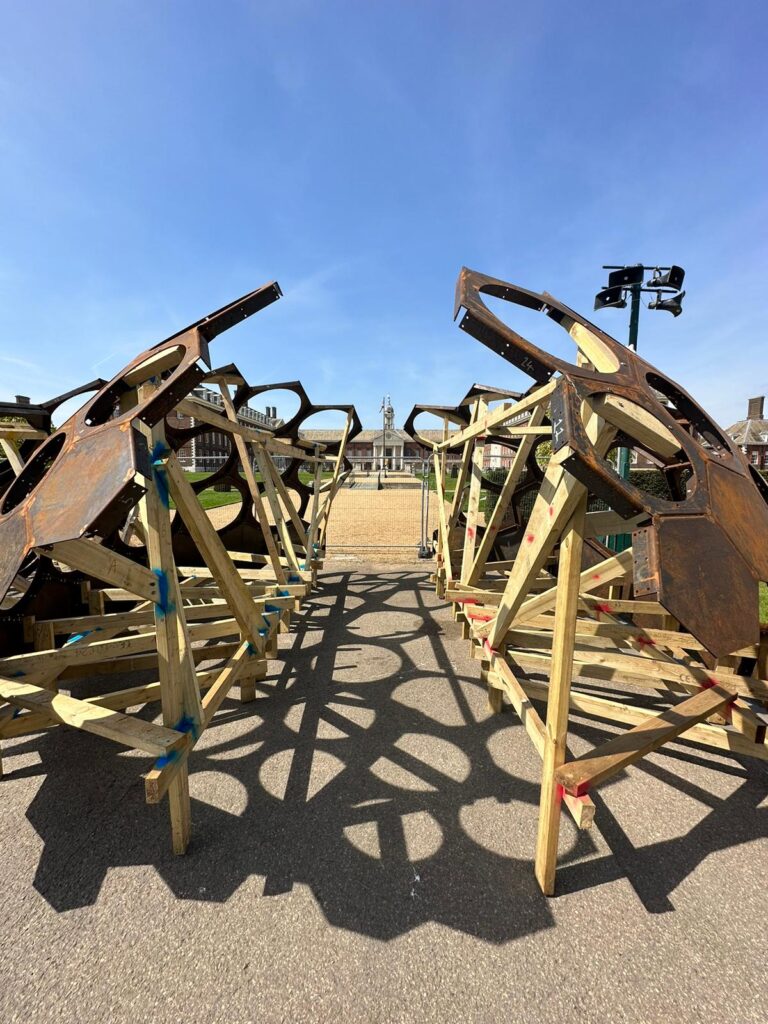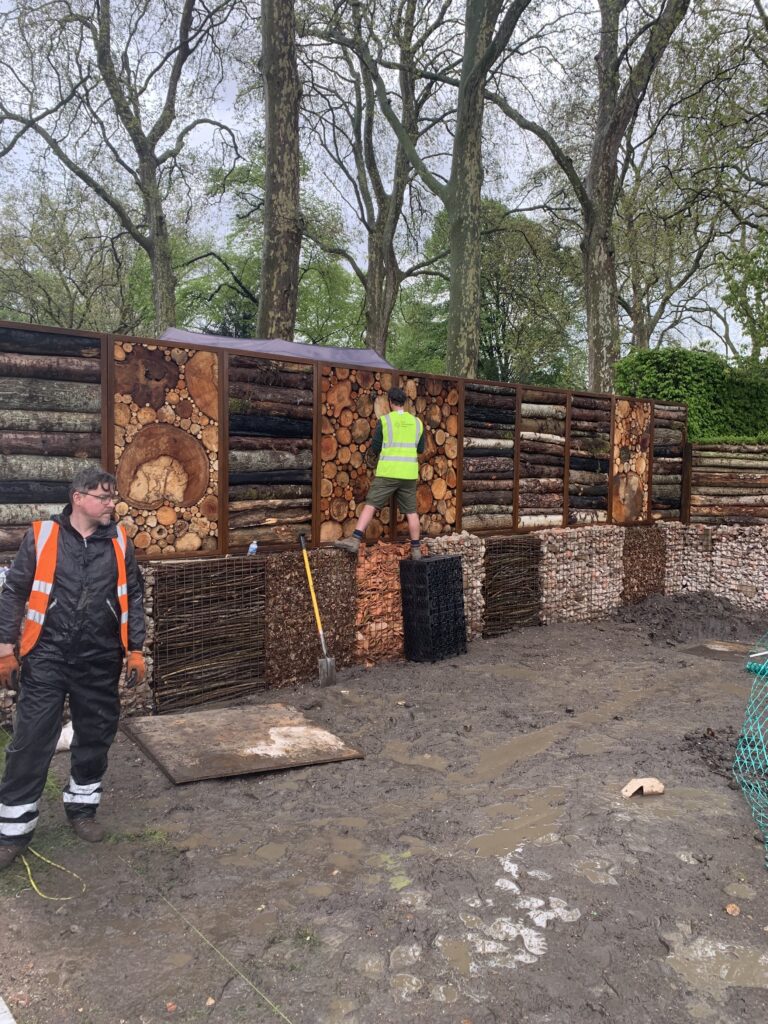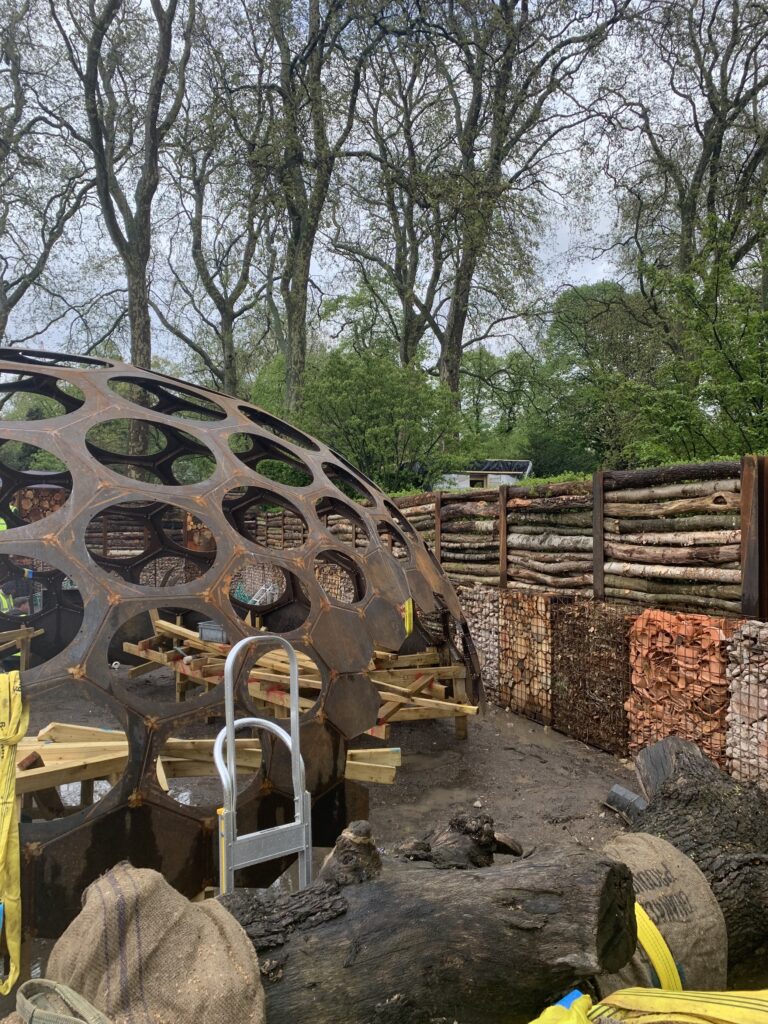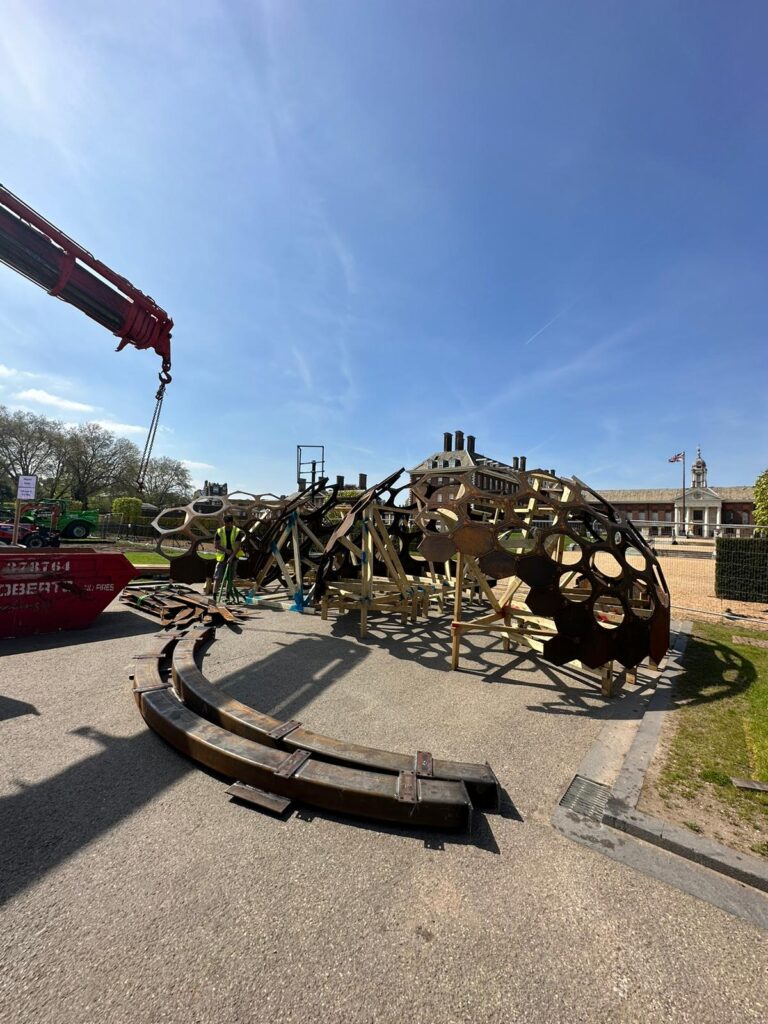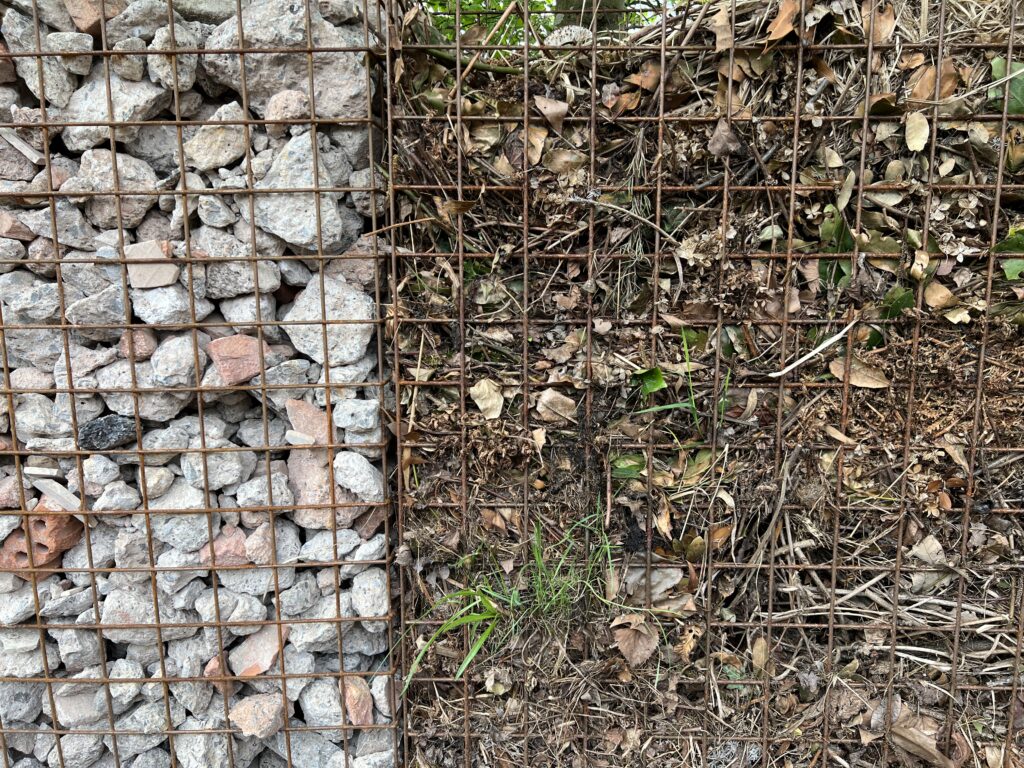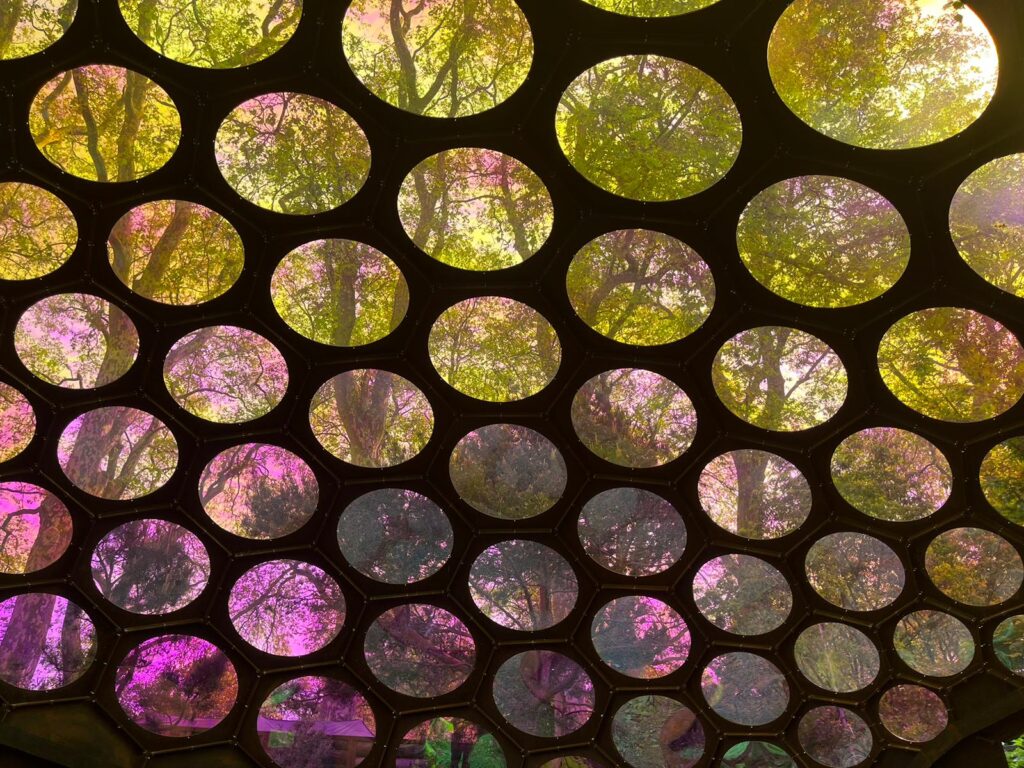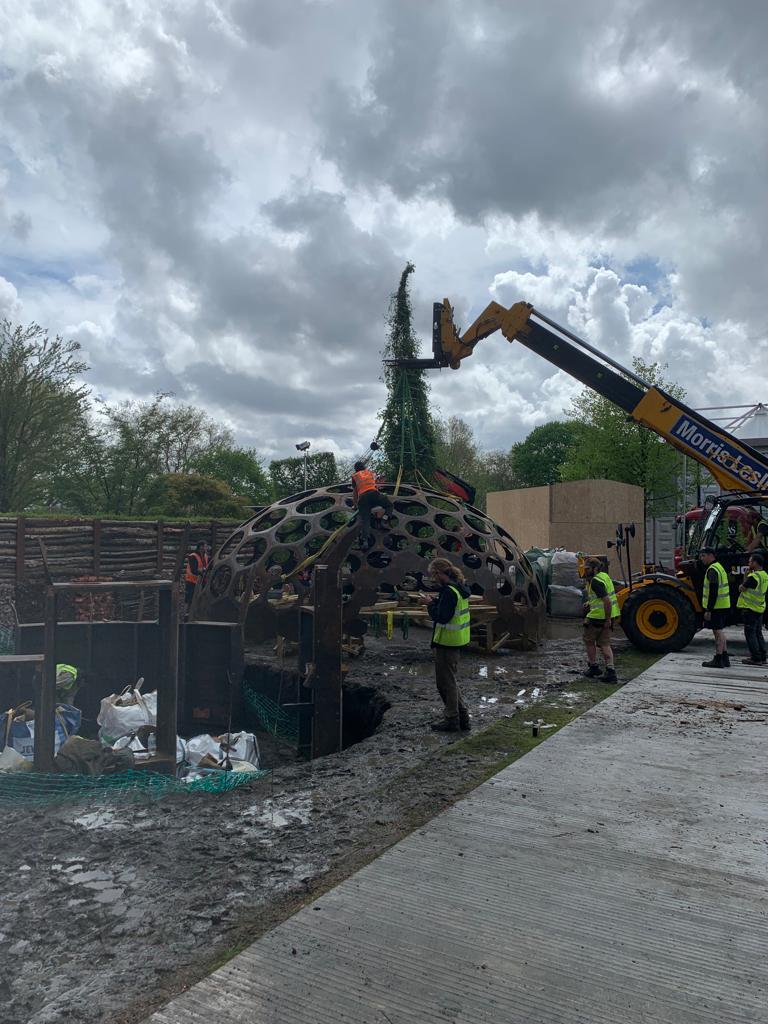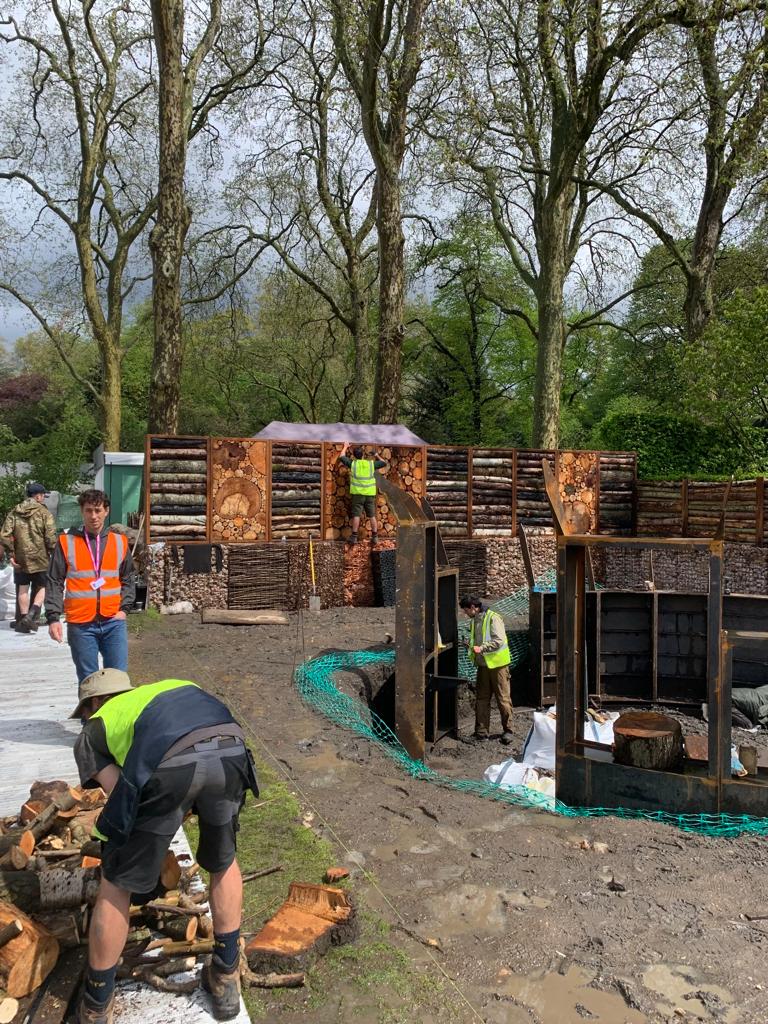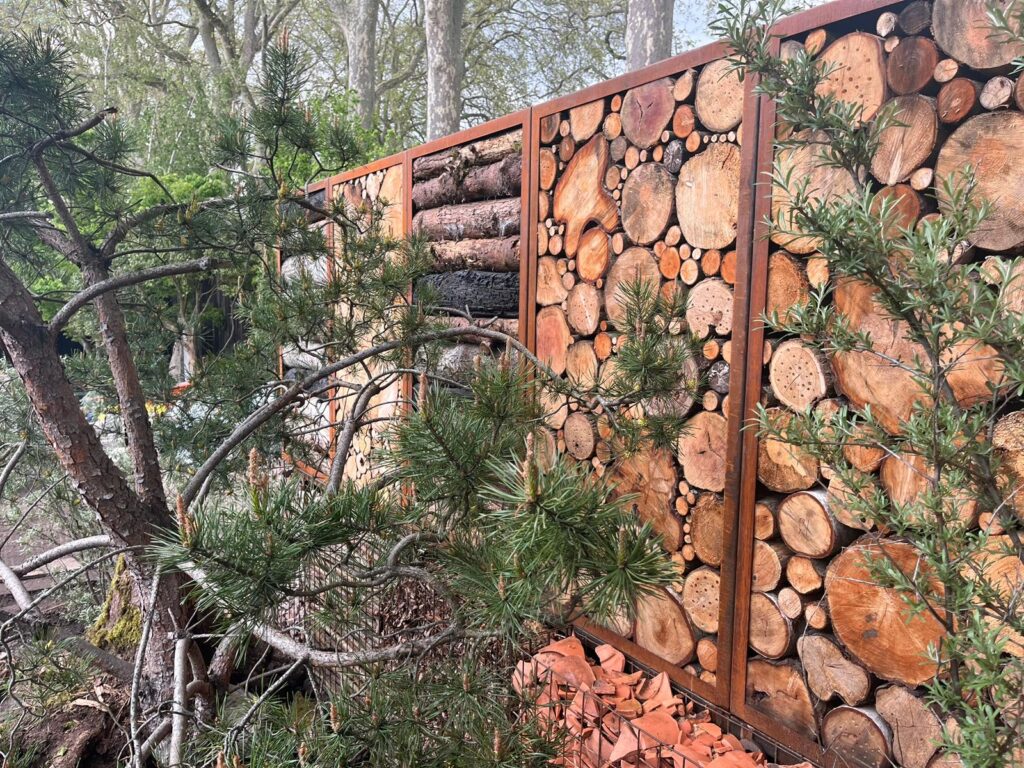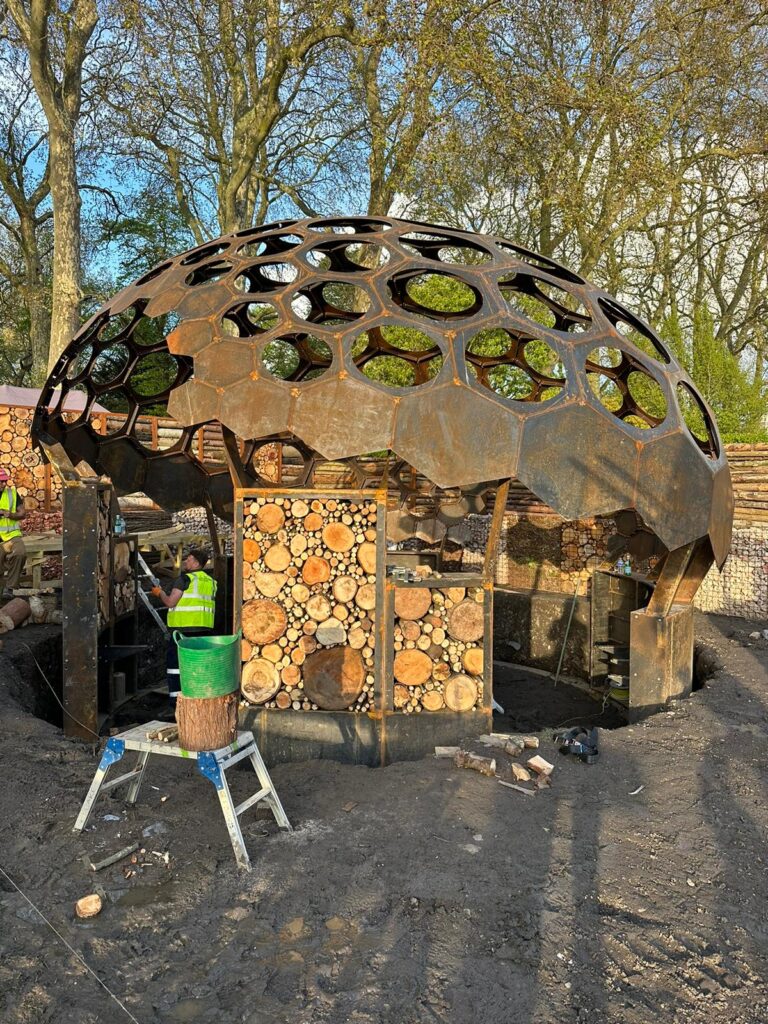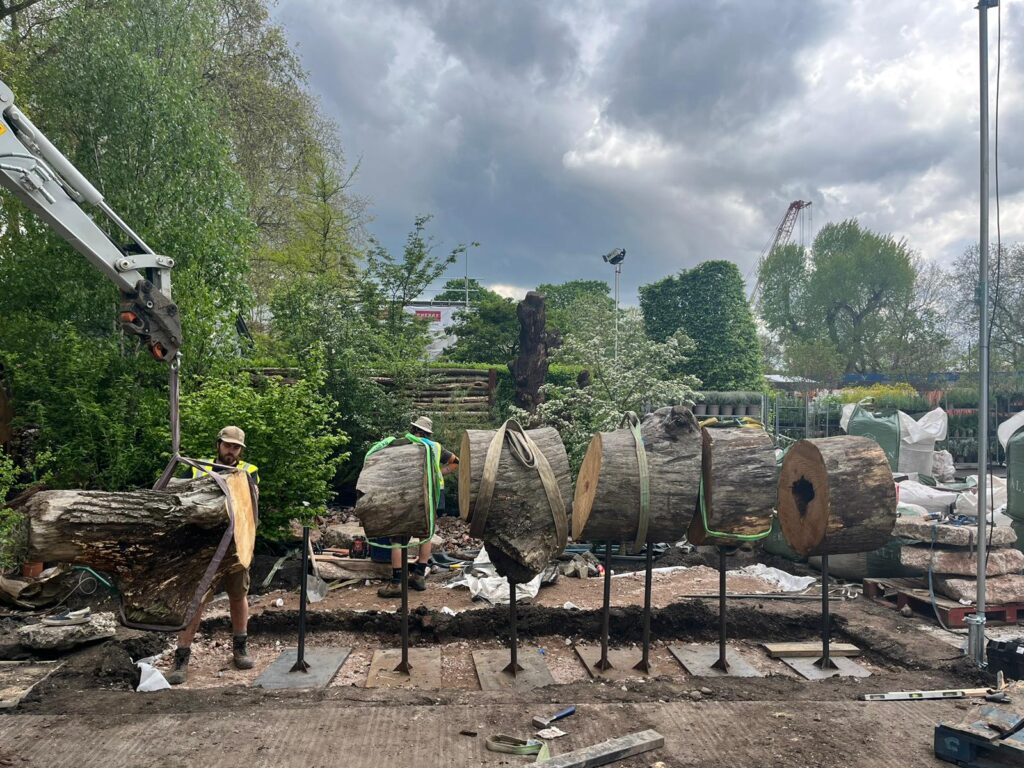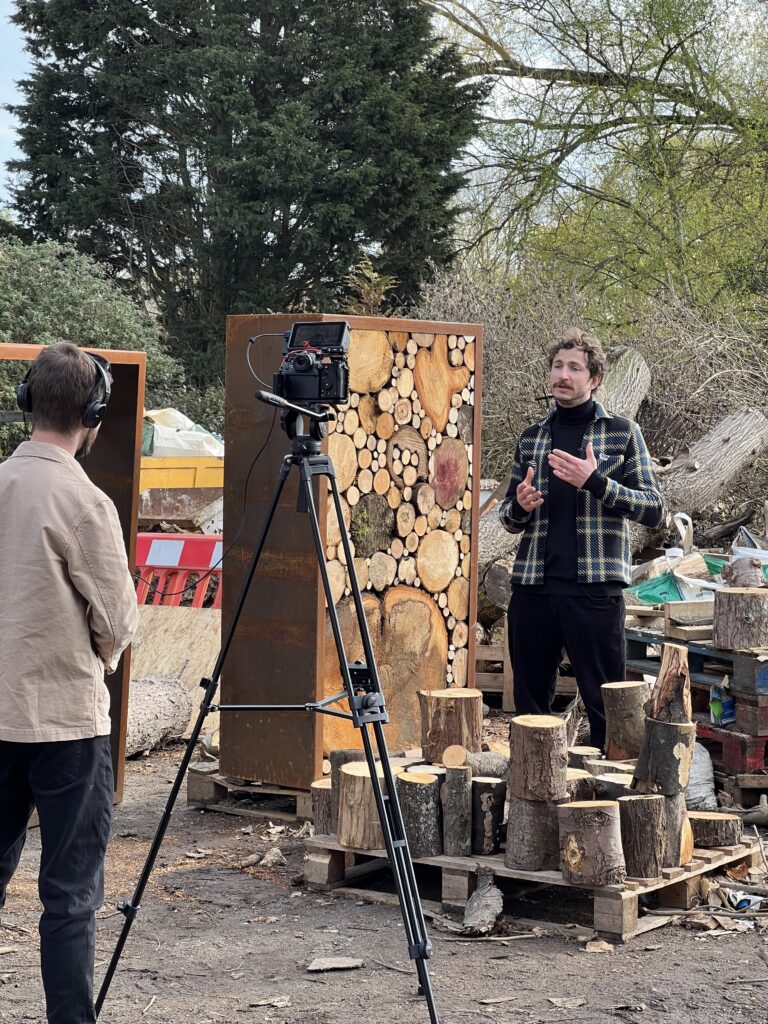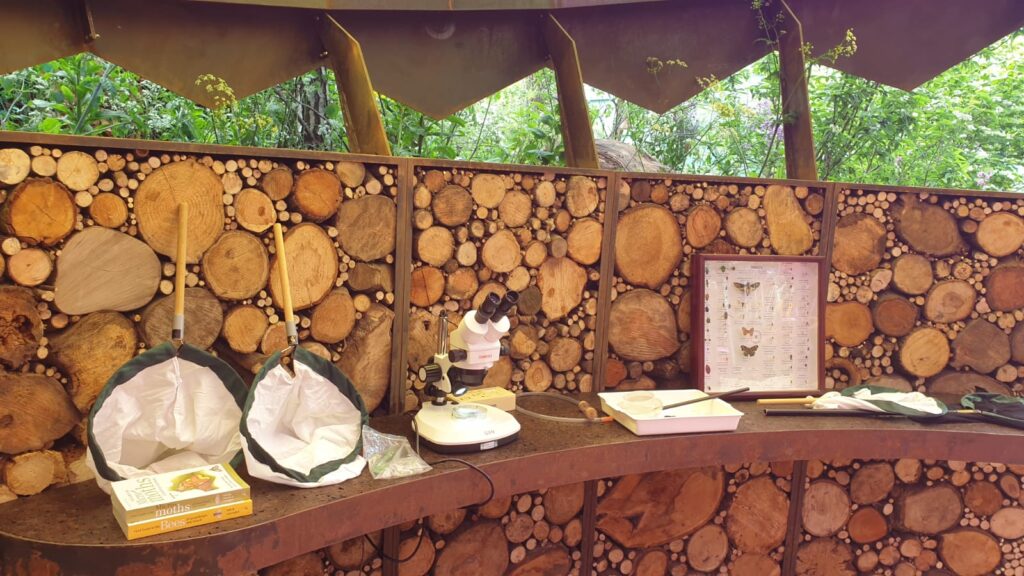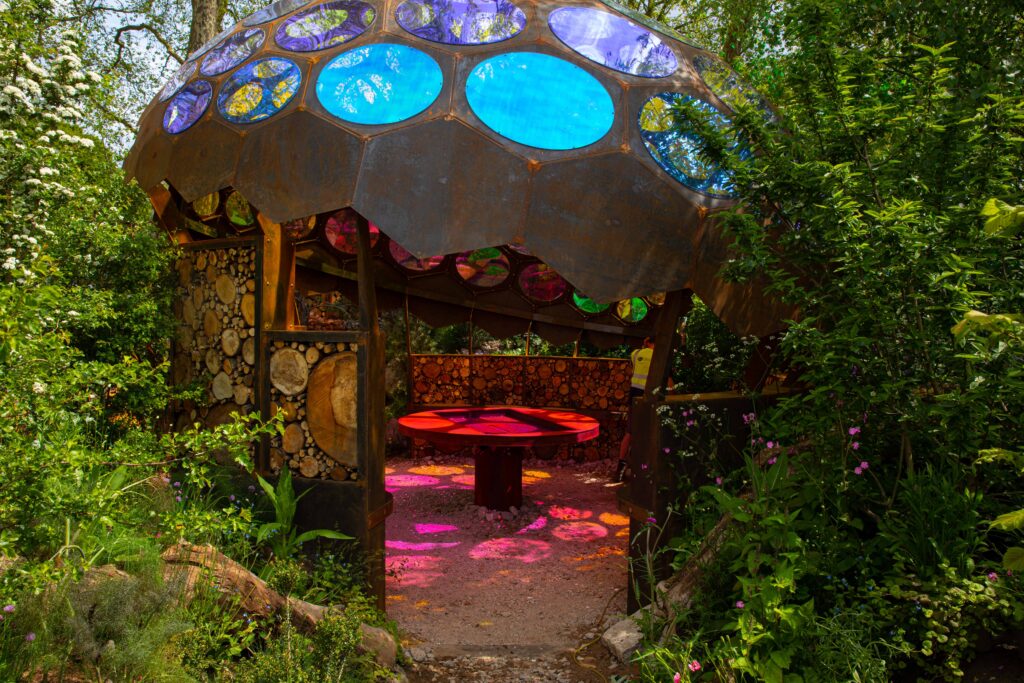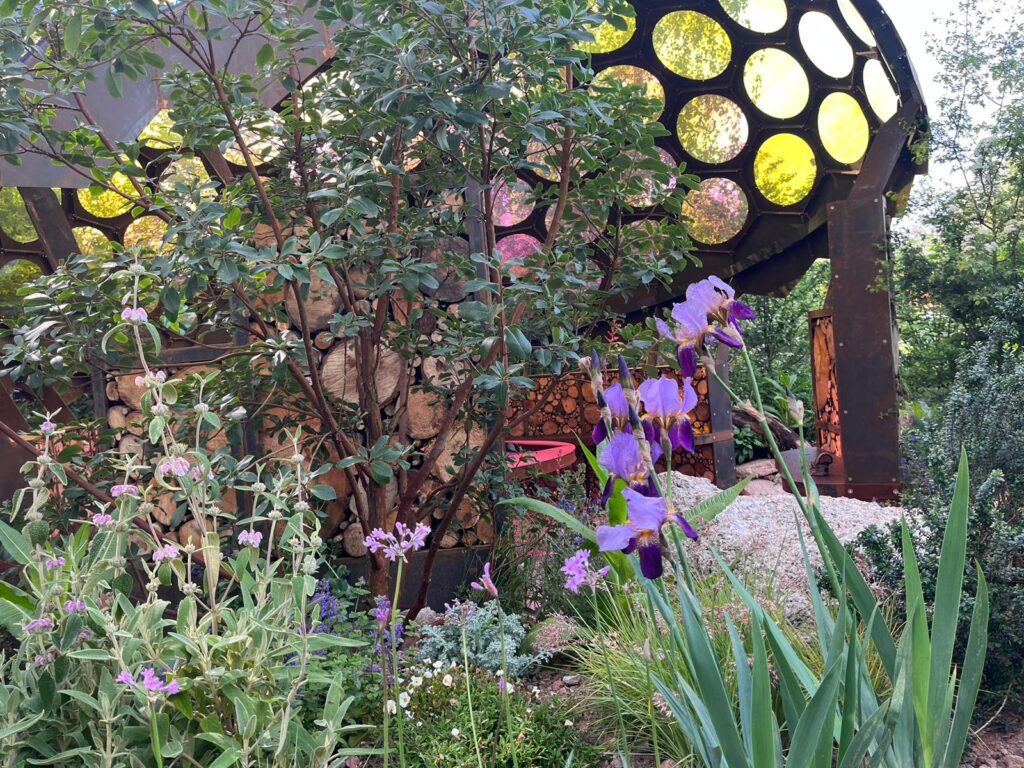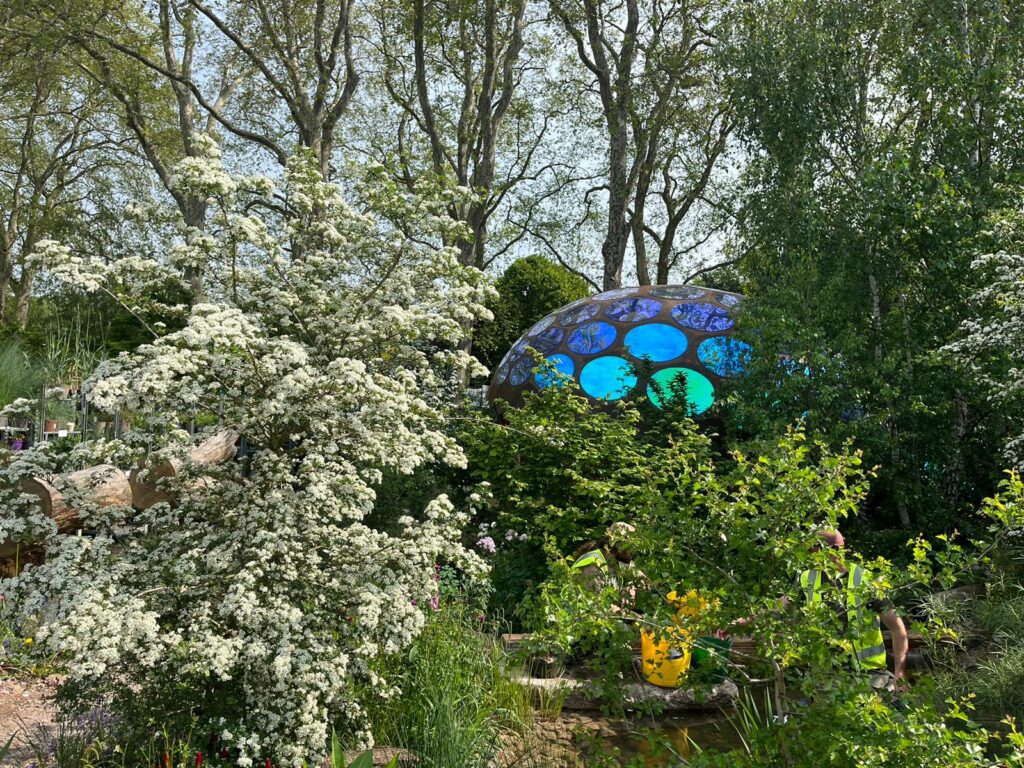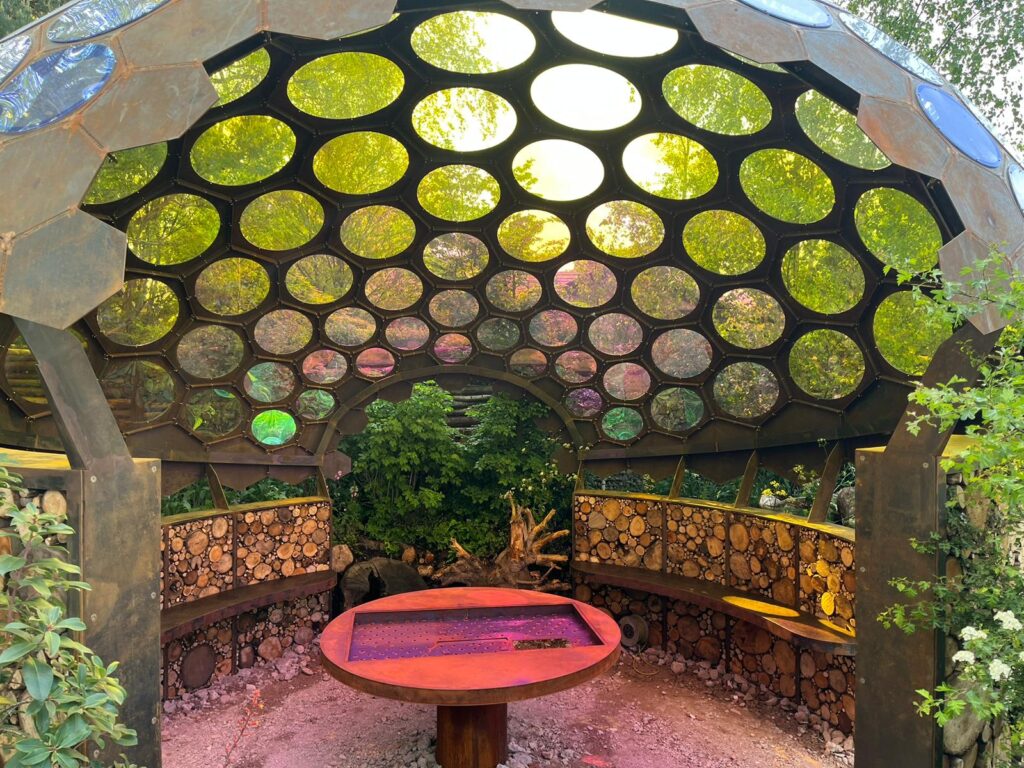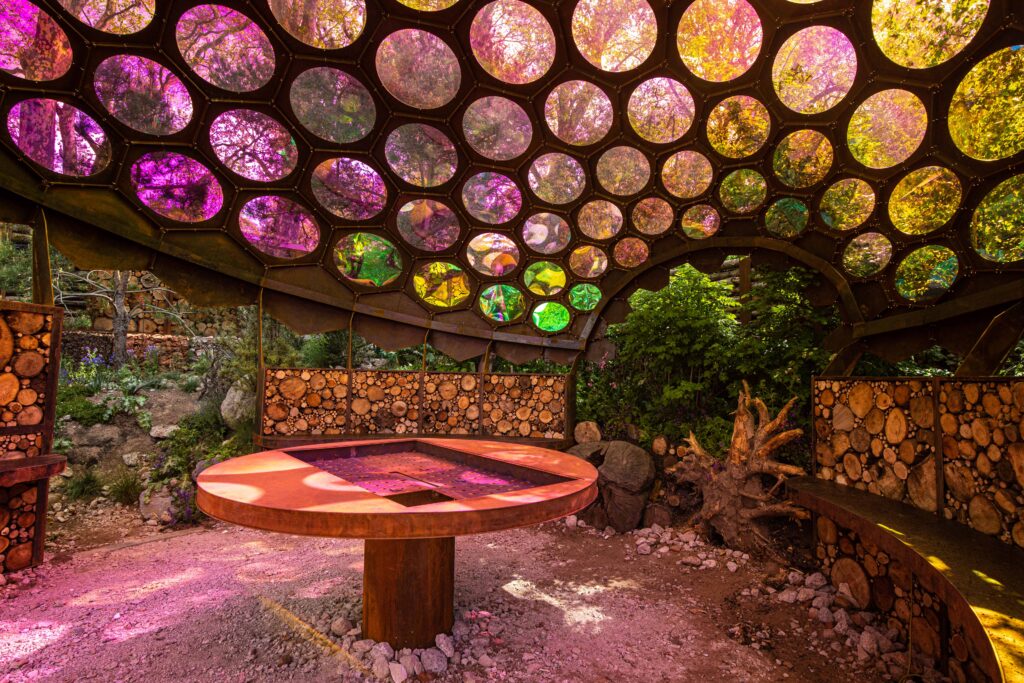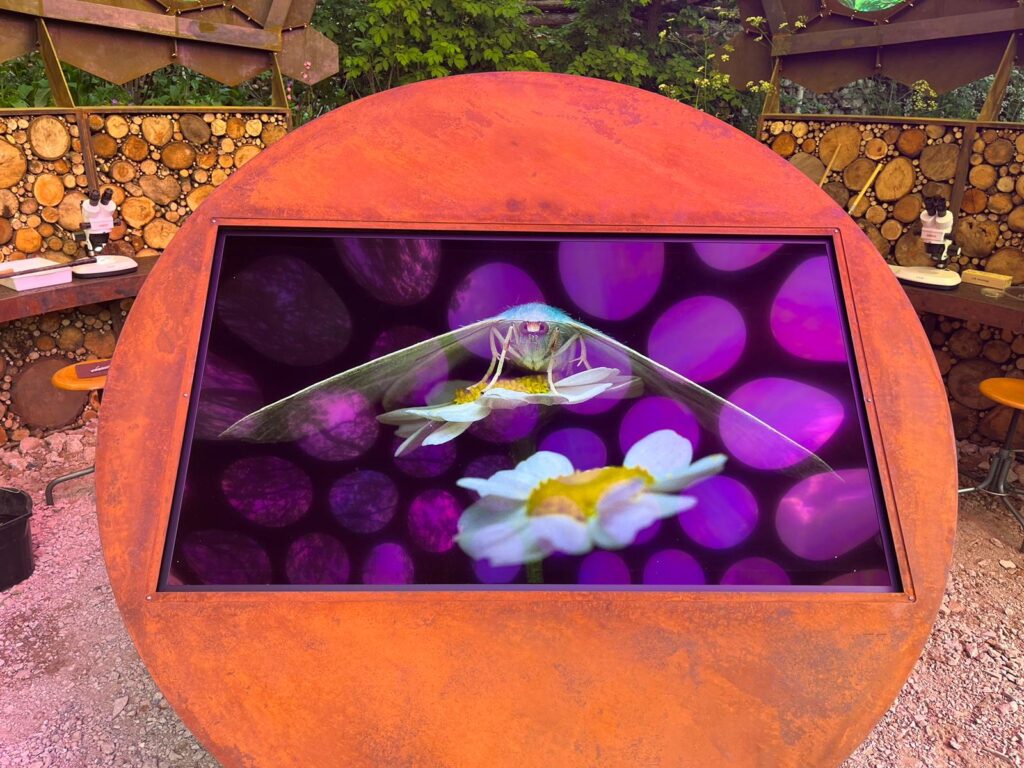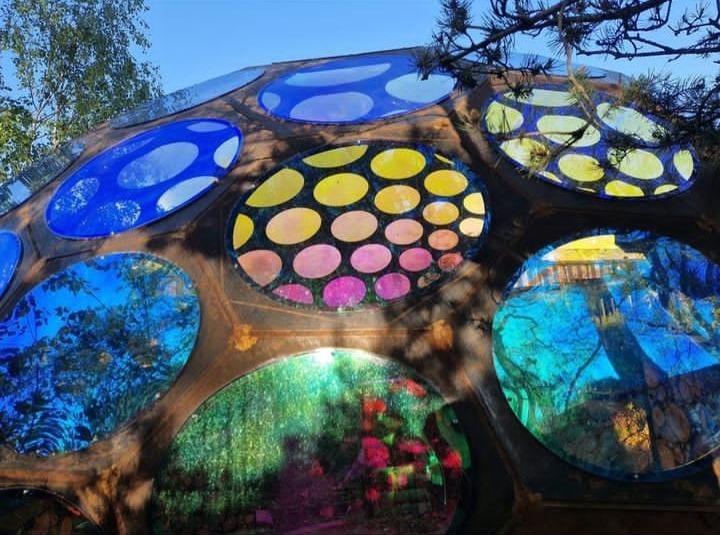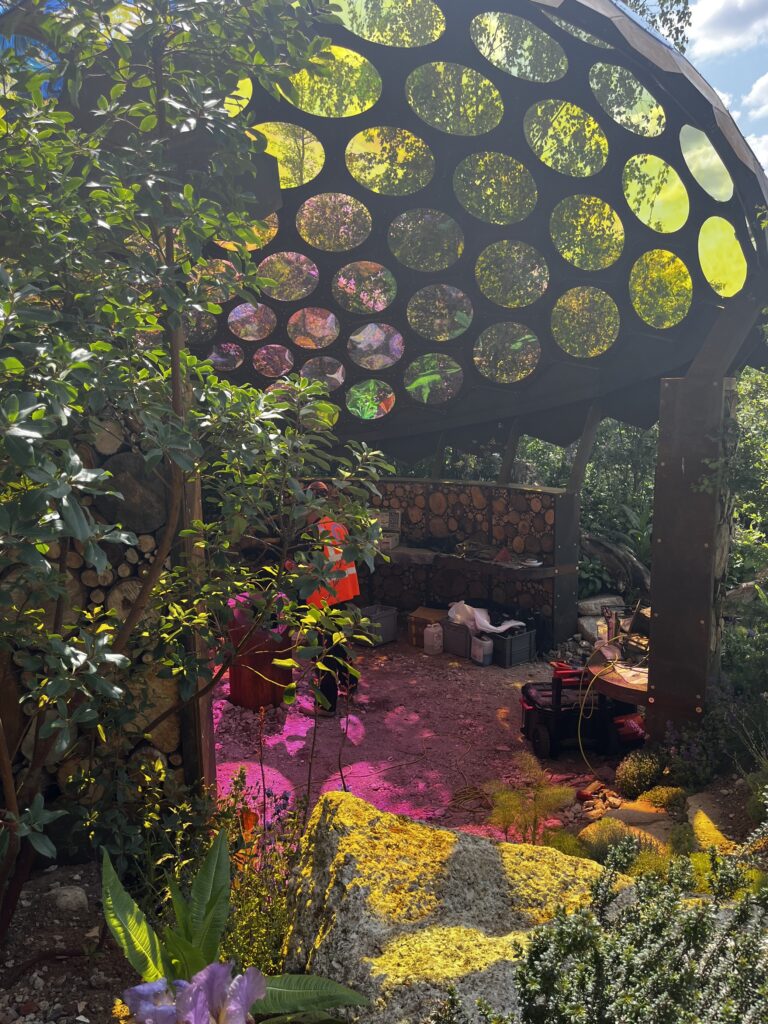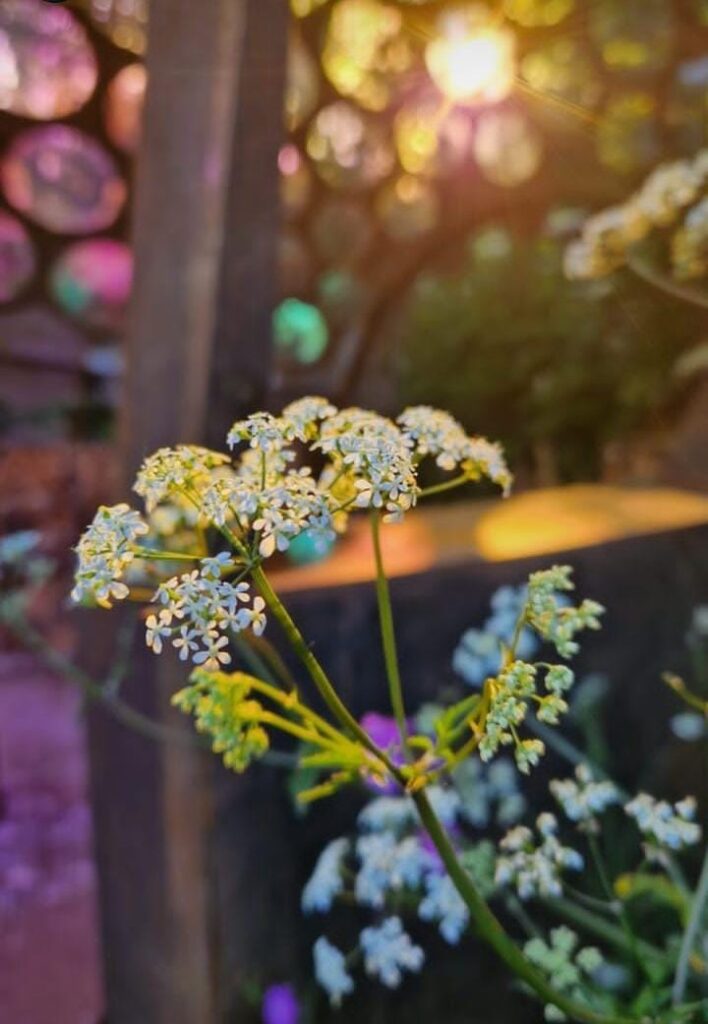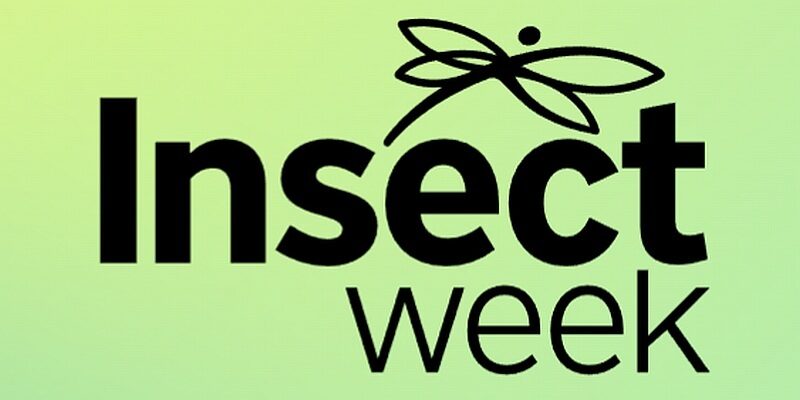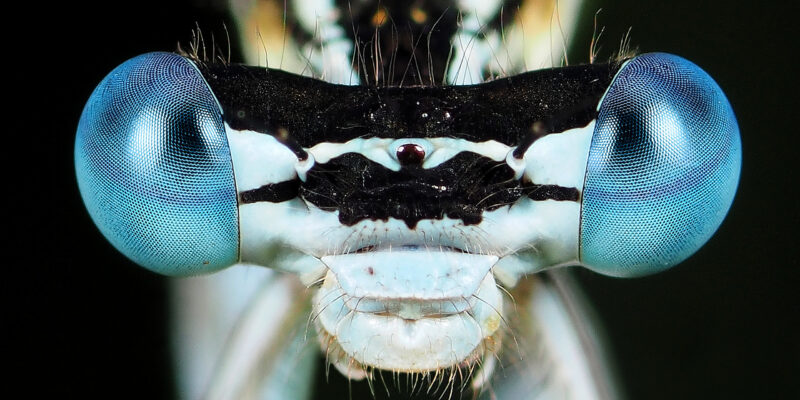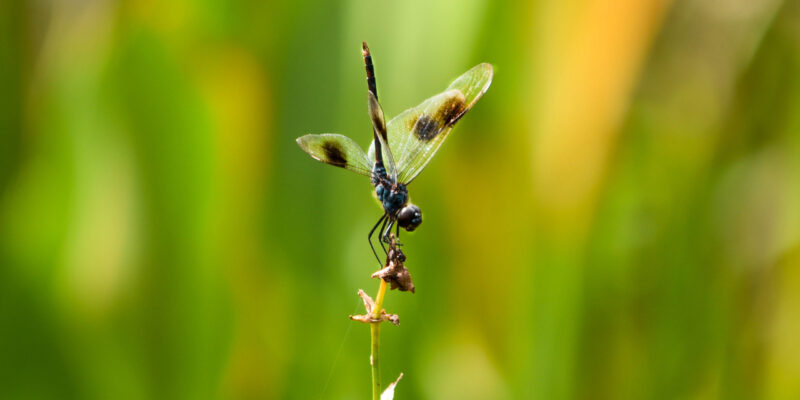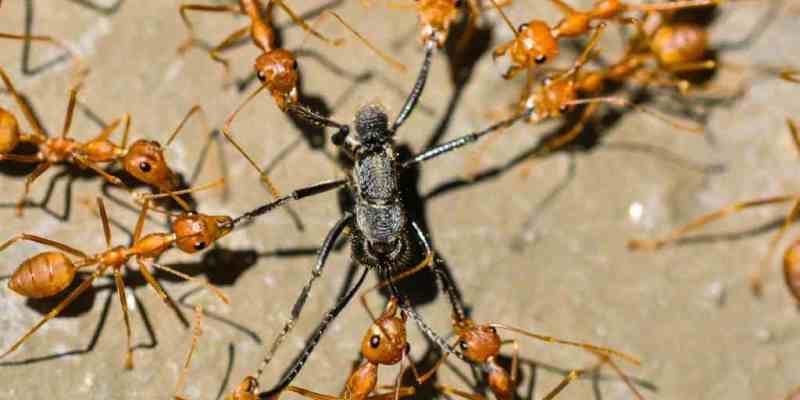May 1-22 2023
RHS Chelsea 2023 behind the scenes – What a week! Slotting together the pieces of the lab structure, gabion progression, log feature and habitat panels ready to welcome some esteemed guests
We feel very lucky to be one of the charities supported by Project Giving Back this year. It’s incredible to watch all of the gardens come to life
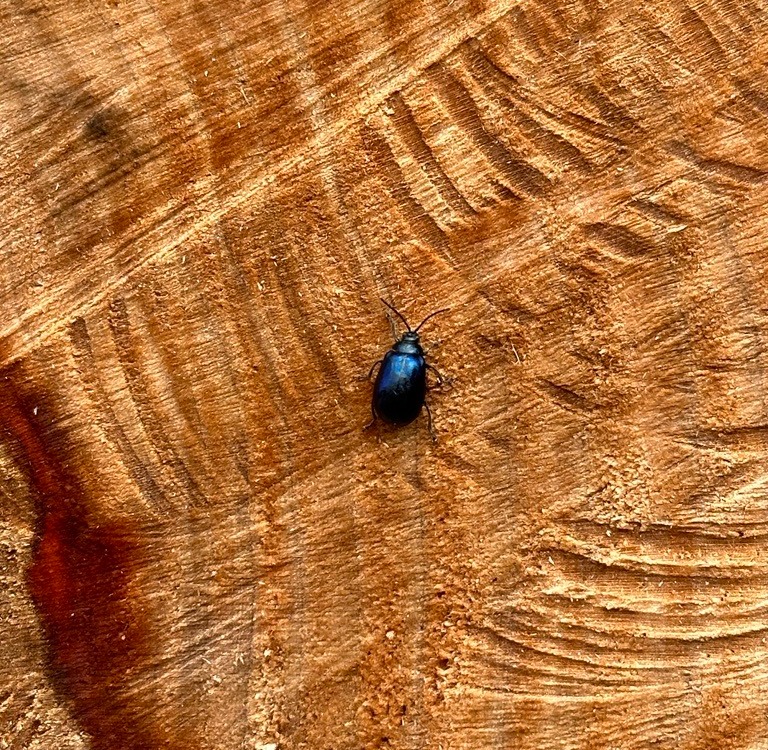
The first tiny visitor of the #RESGarden, a lovely Alder leaf beetle (Agelastica alni). It overwinters as adults which emerge in the spring.
Fun fact: the log it has chosen to visit was a part of an original tree from the Mansion House garden in St Albans, UK where RES HQ currently resides. The tree required felling, but has been given new life as a part of our garden for RHS Chelsea Flower Show and will remain a natural home for insects in its permanent relocation in Stratford.
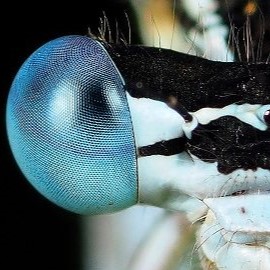
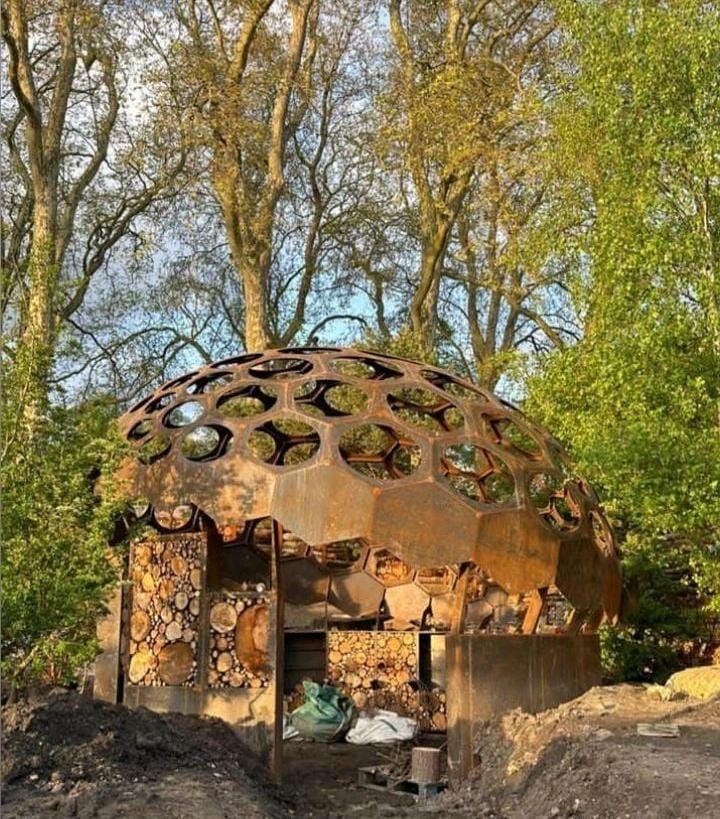
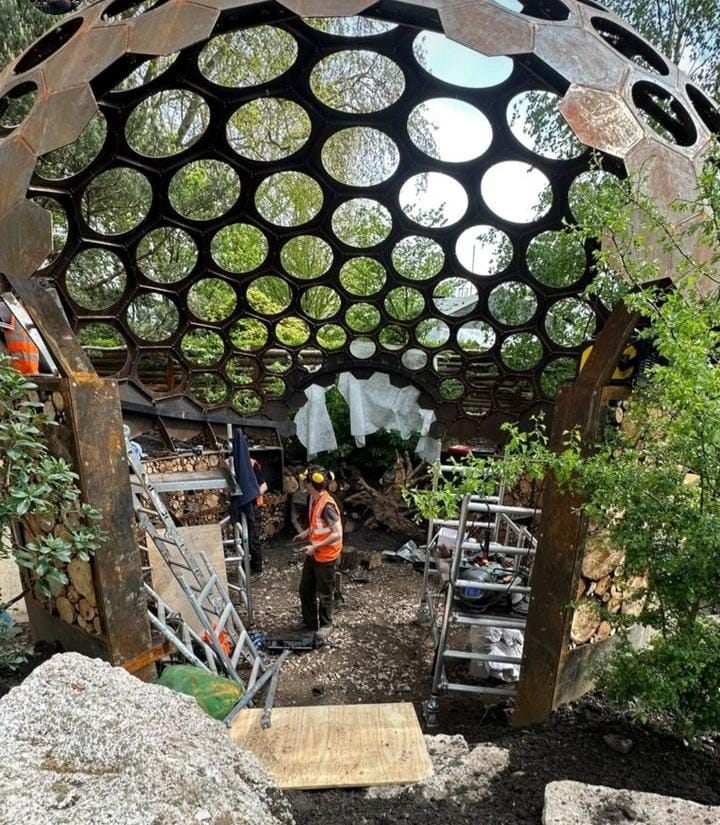
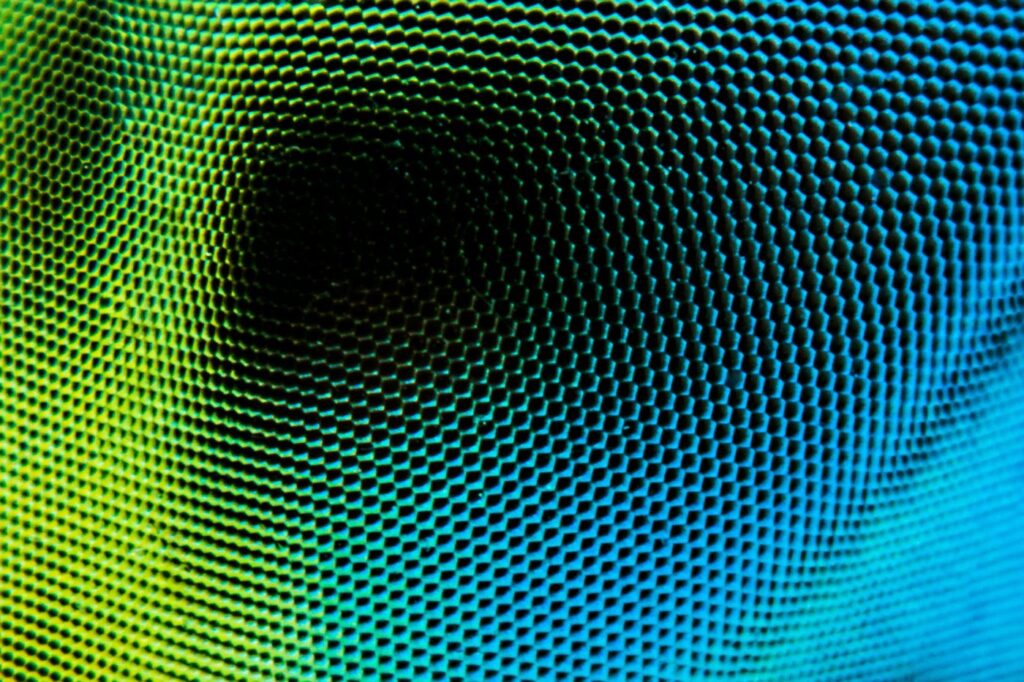
The lab roof, inspired by the insect eye, was designed in collaboration with Spaceplates Building System (N55, Anne Romme and Anne Bagger) and Cake Industries.
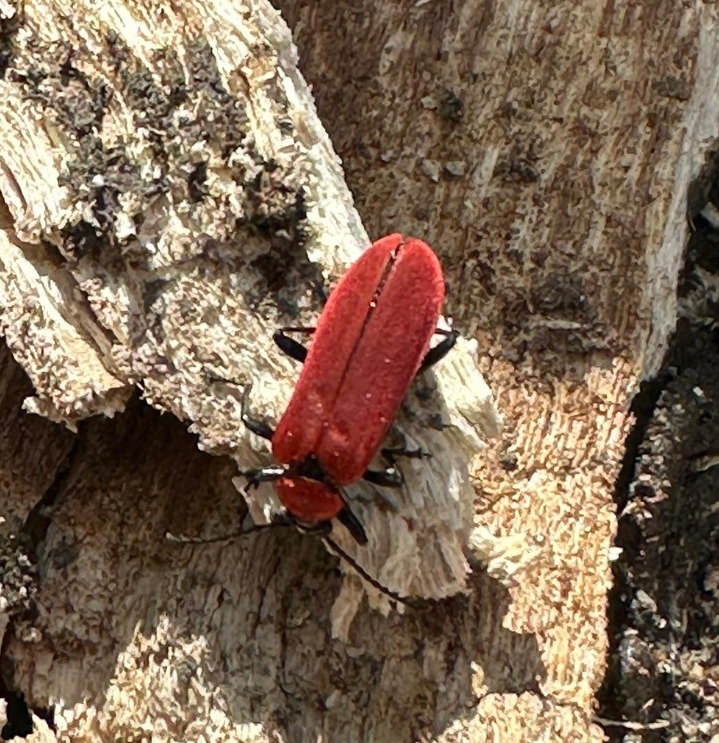
Another visitor to the #RESGarden, a black-headed Cardinal beetle (Pyrochroa coccinea). In the UK it is generally common in southeast England. Adults are short-lived and have a brief season, usually appearing in April, becoming common through May and early June, found typically in wooded areas with a supply of decaying logs and fallen timber
